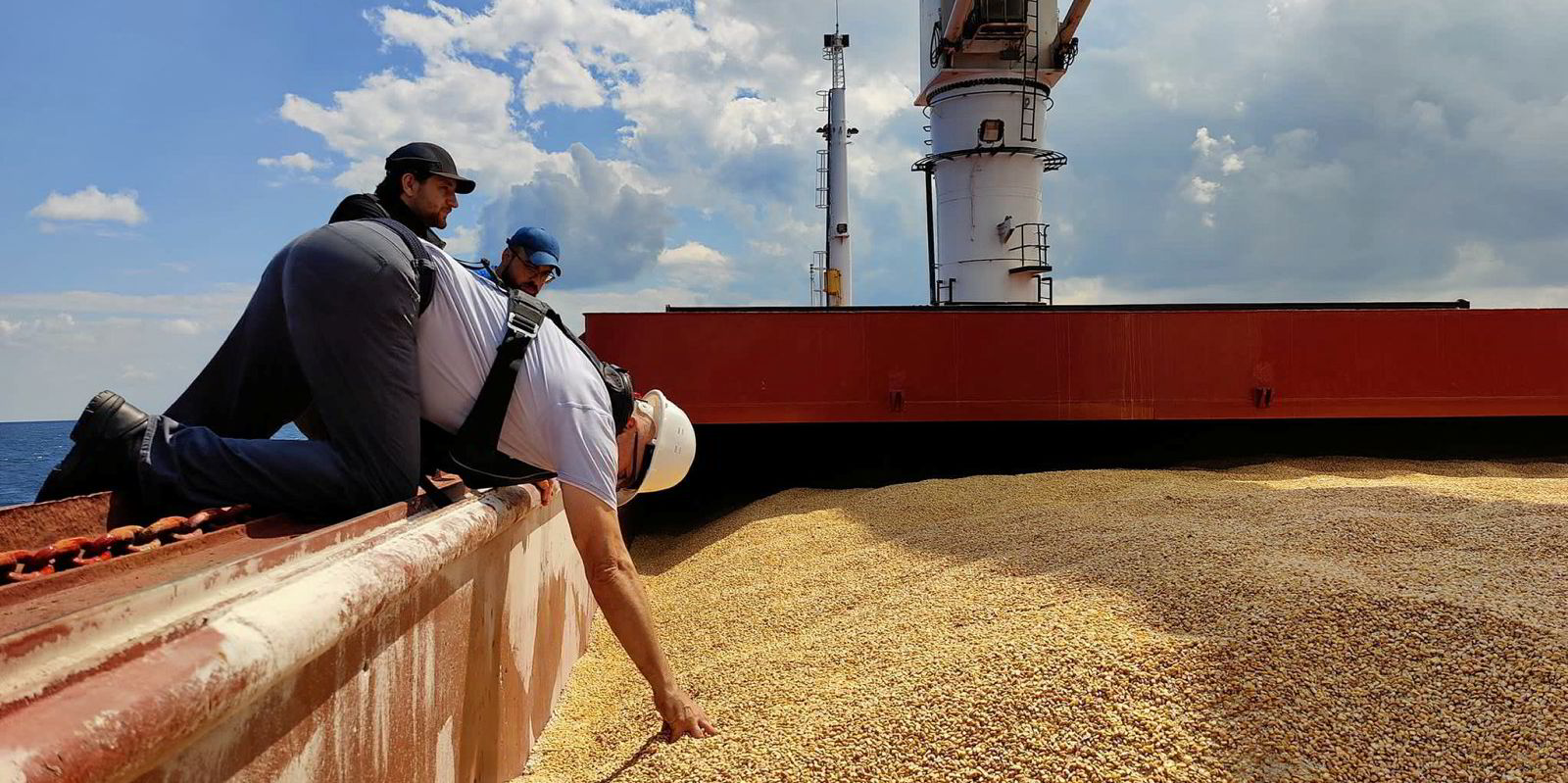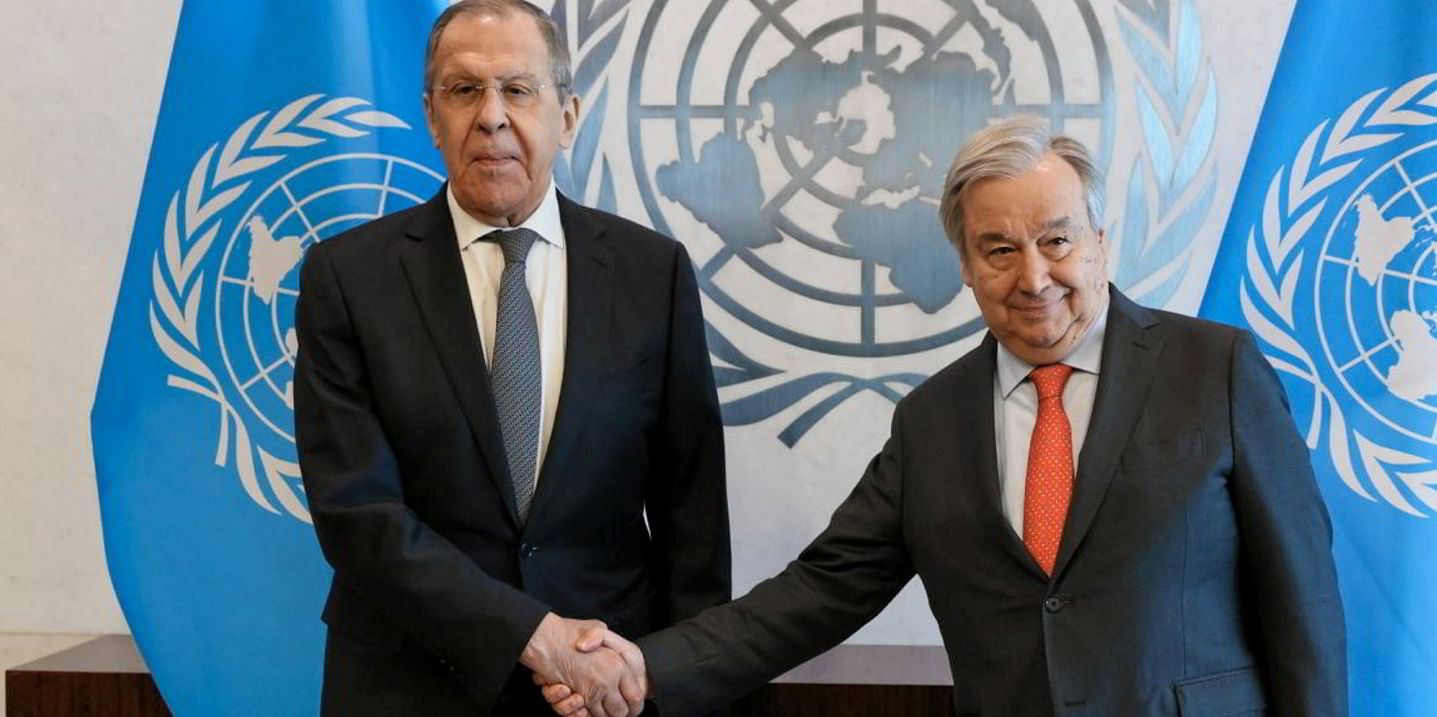In a bid to help the United Nations renew a sea corridor for Ukrainian grain expiring on 17 July, European Union officials are moving to meet one of several conditions set by Russia, the Financial Times reported on Monday.
According to the report, the EU mulls softening financial sanctions to allow the Russian Agricultural Bank to handle payments related to Russia’s own grain exports.
The plan is for the Russian Agricultural Bank to set up a separate subsidiary that would be permitted to use SWIFT — the world’s main interbank messaging system.
Russia has been demanding since March that the Russian Agricultural Bank be reconnected to SWIFT.
This, however, is just one of several demands posed by Moscow, which has been claiming for months that the UN has failed to live up to a pledge last year to accommodate the export of both Ukrainian grain and Russian crops and ammonia.
Other Russian conditions have included the resumption of supplies of agricultural machinery and spare parts, the lifting of restrictions on insurance and access to ports for related Russian ships and cargo, as well as the unblocking of accounts and financial activities of Russian fertiliser companies.
Russia’s stance already nearly scuppered the UN’s Black Sea Grain Initiative (BSGI) in May, when the deal was last up for renewal.
Moscow grudgingly accepted to extend the deal for another two months at the time — most likely to avoid displeasing co-mediator Turkey, whose president Recep Tayyip Erdogan was facing a very close election.
The BSGI’s prospects dimmed further in June, when the Togliatti-Odesa ammonia pipeline exploded, casting doubt on whether Russia would ever be able to resume its suspended ammonia exports through Ukrainian soil.
Ukraine and Russia have blamed each other for the pipeline explosion.
Several senior Russian officials have said since that their country has no reason to extend the deal beyond 17 July. Some Russian sources even claim that a formal decision to that effect has already been taken, even though it has not been officially released.
Russian President Vladimir Putin seemed to confirm that rumour on 17 June, when he publicly objected to a request by South African President Cyril Ramaphosa to help remove “any barriers that currently exist” in the movement of Ukrainian grain.
“We do not believe that the supply of Ukrainian grain to world markets solves the problem of poverty and hunger,” Putin told six African leaders gathered in St Petersburg.
No longer worth the risk
Russian inspectors sitting in Istanbul have since been drip-feeding vessels through the BGSI. According to UN data, they have failed to clear a single vessel heading for Ukraine since 29 June.
On 30 June, a spokesman for UN secretary general Antonio Guterres said that officials would be meeting in the coming days to help break the deadlock.
Meanwhile, Ukraine has been trying to export more of its grain through the Danube.
Market players, however, doubt river ports and onshore infrastructure is sufficient to handle the 11m tonnes of crops stockpiled in the country — especially as the new grain harvest begins.
“It’s a pity but this is the reality,” Vassilis Mouyis, co-founder and managing director of Doric Shipbrokers, said at the 8th Global Shipbrokers Forum in Piraeus last week.

Nearly 1,000 sea voyages have been made through the BSGI corridor over the past 11 months in a trade that has supported earnings from general cargo ships from handysizes to panamaxes.
However, falling bulker markets, week-long delays at the Bosphorus and perceptions of higher risk have dampened owners’ enthusiasm to keep sending their vessels there.
“Freight rates do not compensate the risk that we would take to call at a very high-risk area such as Ukraine,” one ship manager told TradeWinds recently.
Mouyis views things in a similar way.
The BSGI used to earn shipowners up to 2.5 times the normal bulker freight rates but the trade “seems to have lost its relevance” now, he said.




